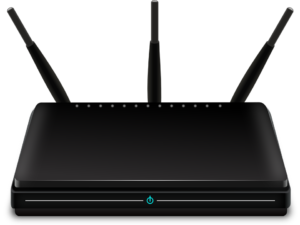How to protect your privacy
VPN stands for Virtual Private Network. To understand how a VPN can protect your privacy from advertisers, it is important to understand how it works.
Normally, when you want to access a website, you type in the URL into the address bar or click on a link. What the browser does in both cases is to send a request to the web server that hosts the web site/page. When such a request is received, the web server sends ‘cookies’ to the computer from where the request originated.
The cookies capture information like IP address of the computer (this is assigned by the Internet Service Provider or ISP and may be different each time you connect to the internet) and the time of the request, and communicate with the web server. It is based on the IP address that the web server then decides whether or not to allow access to the requested content.
This is why ABC programs cannot be watched outside Australia, as the ABC web server would figure out, based on the IP address, that the computer from where the request originated is located outside the country.
For every website you visit, a cookie comes to life on your computer. So if you have visited 30 pages (not necessarily sites, these could all be different pages on the same website, such as an online shopping portal), there would be thirty cookies.
How targeted advertising works
If you have noticed, a lot of sites are free. You are not charged for content access. But there are hosting charges involved, and how websites make money to recover this (and perhaps even make a profit) is by designating areas on their pages exclusively for advertisements and offering them up for sale.
Ad servers bid for these slots, and the winner can place whichever ad(s) they want. Websites work closely with ad servers, and when a web server gets the IP address of a computer that has requested content, it is passed on to the ad server.
The ad server then sends a script to your computer that scans all the cookies present (these are all usually located in a particular folder), and based on the information it gleans, it decides which ads are to be displayed on the web page. This is how you see ads for the same e-book that you were looking at only moments earlier, and offered from the exact same website too!
With a Virtual Private Network, a VPN server is placed between your ISP (to which your computer is connected), your gateway to the Internet, and the web server. What the VPN server does is to receive and forward your request, but with its own IP address.
All cookies appear only on the VPN server, and without knowing your browsing history or behavior, an ad server cannot place targeted ads on the page you see. Yay!
All it has is the IP address of the VPN server, but the same VPN server would be used by multiple clients. So with a myriad plethora of web requests, there is no way an ad server can pinpoint you and serve ads based on your past browsing history.








